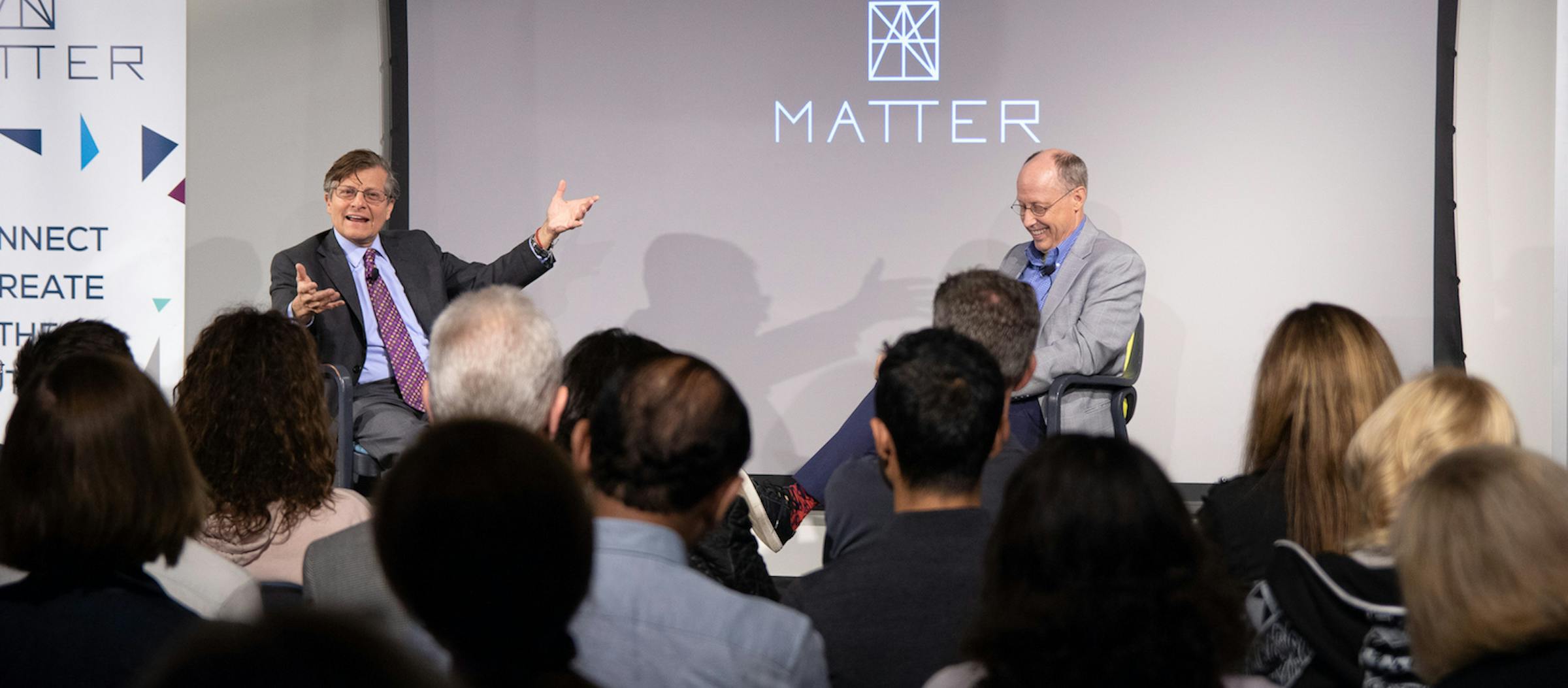Cleveland Clinic’s Michael Roizen on the future of wellness
Are we in control of our own health? Dr. Michael Roizen, chief wellness officer at Cleveland Clinic, says yes.
Last week, during an animated talk at MATTER, Dr. Roizen argued that a person’s longevity and quality of life are primarily the result of personal health choices. He called for a radical change in our culture, arguing that the only way to bend the healthcare cost curve is to make wellness the mission of the country.
Roizen has garnered national attention for developing the RealAge concept, which suggests that a person’s “real age” is influenced by their lifestyle choices and can be reduced by embracing healthier behaviors. He discussed how this concept has influenced the Cleveland Clinic’s wellness efforts and shared how the health system incentivizes employees to maintain healthy habits.
Below are a few of Dr. Roizen’s most notable quotes.
What’s the problem?
“Unless altered, healthcare costs will disrupt societies. 80% [of healthcare costs] in America, and in the world, are due for chronic disease management, and we know how to stop it.”
“50% of Americans now admit they do less than ten minutes of walking any day of the week. [Since 1990] our medical costs have increased 50% on a relative basis. Our body mass index has increased 0.37% per year — that is a pound and a quarter per person”
Call to action
“The reason I got involved in this [work] was that when you look at the risks of surgery… the outcome of surgery is dependent largely on your age. That is if you’re undergoing a valve replacement, and you’re 75, everything else being equal with a 65-year old, you have three times the risk of dying in complications. And the same thing with a 55-year old: you have nine times the risk. So I thought our job, in the perioperative period, was to try and get people 10 years younger. And that’s what we did and that’s what we still do.”
Who’s in control?
“[According to the CDC] 84% of all costs— 67% of [these costs come from] the under 65 population —come from four things: tobacco, food choices, physical inactivity and unmanaged stress. You notice none of those are inherent to us. We get to change any one of those that we want, and that’s the joy of it, because that means that 84% of our costs are under our control.”
“You control which of your genes are on or not… What you do by stress management, by physical activity, by choosing the right foods, by avoiding toxins like tobacco, is you [change] which of your genes are on or off. We don’t yet change genes routinely, but you can change your gene functioning pretty easily.”
Improved health at Cleveland Clinic
“You can’t get this [improved health] without changing the culture. The first thing we did was say you can’t smoke on campus…You get a ticket if you’re smoking [on the Cleveland Clinic campus]. The second ticket you get if you’re an employee means you’re fired — no ifs, ands or buts. We fired two high profile surgeons, and we made it public and [Cleveland Clinic employees] knew we were serious.”
No more band-aids. It’s time to fix the root problem
“It’s much easier and much less expensive to turn off the faucet than to mop up and fix the floorboards. We’ve been fixing the floorboards by caring for people with Type II diabetes and osteoarthritis and dementia, instead of turning off the faucet. We all know how to turn off the faucet, and anyone can do it.
If the United States [turned off the faucet], we wouldn’t have a budget crisis…There wouldn’t have to be social disruption, there wouldn’t have to be rationing and we could do a lot of things for other programs that all of us care about. That’s how big this need is. Cleveland Clinic can’t do it alone. It’s got to be a World War II-like effort. This [effort] has to be a mission of the country or we will have social disruption.”
Sign up for the MATTER mailing list to stay up to date on healthcare innovation news and programs.



